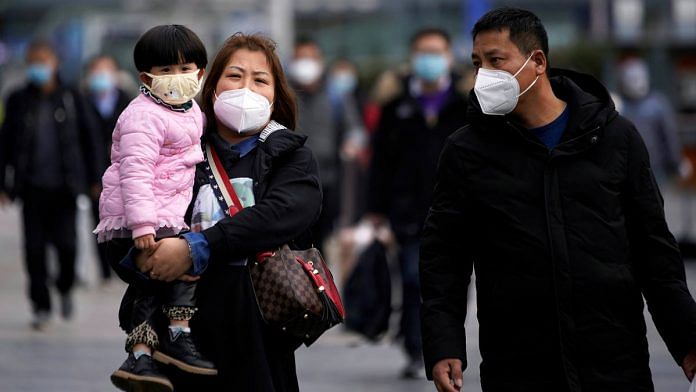New Delhi: Beijing is looking to fast-track a legislation on the ban on hunting and consumption of wild animals as the outbreak of the novel coronavirus Covid-19 appears to have stagnated in the country, giving China a window to improve its recovery efforts.
The 15th Standing Committee of the Beijing Municipal People’s Congress met Thursday to discuss the draft regulations of the ban. The proposal looks to extend the ban to all terrestrial wild animals and certain aquatic wild animals.
The Beijing Daily, the official newspaper of the Communist Party of China’s Beijing Municipal Committee, also reported that a penalty of 2 to 15 times the price of the animal was proposed. Beijing’s municipal body is the most important local administrative body in China.
The regulation is the first step towards China’s pledge to revise its laws on wildlife trade and consumption. The law is also likely to have echos in other parts of the country.
Late in January, China imposed a ban on hunting and consumption of wild animals on suspicion that the Covid-19 outbreak was linked to the wildlife trade in the country. The initial cases in Hubei province were of people who had been exposed to the wildlife market in Wuhan, where bats, civets, snakes and other animals are sold. Wuhan had become the epicentre of the outbreak up until second week of March.
Also read: Why India has opted for a China-style lockdown and not like the one in Italy
Zoonotic diseases
If proven to be so, coronavirus wouldn’t be the first zoonotic disease — those which are transmitted from animals to humans — to occur in China. The SARS epidemic, which claimed 774 lives, is likely to have originated from horseshoe bats of the Yunan province.
A group of Chinese researchers spent five years examining SARS-related viruses in these bats and found 11 strains with the genetic blocks of the virus that caused the 2002 SARS outbreak.
In fact, 70 per cent of emerging infections in humans are said to be transmitted from animals. Researcher L.F. Wang and G. Crameri in their paper on the emerging zoonotic viral diseases point to environmental factors as the reason behind the increase in these diseases.
“The drivers of change include the modernisation of farming practices, particularly in the developing world, habitat destruction, human encroachment and climate change,” the paper, published in 2014, notes.
It also stated: “… while we need to be vigilant to those known pathogens of pandemic potential, it is possible that the next deChadly pandemic may be the result of a currently unknown zoonotic agent or one of the thousands of genetically identified agents of currently unknown pathogenic potential.”
Also read: Covid-19 conspiracy theories and what China did wrong and what it didn’t
Wildlife fixation
Animals have been a part of Chinese cuisine and culture since ancient times. The demand for wildlife animals rose sharply in the 20th century following the country’s economic rise, making China the world’s largest market for “illegal” wildlife products.
Such has been the demand, countries all over the world have been struggling to protect their wildlife and ecology from China. According to the South China Morning Post, exotic foods constitute US$605 billion of the country’s catering industry.
Ingredients like bear bile and tiger bones are used in traditional Chinese medicine (TCM). The impact of procuring them has an immensely detrimental impact on wildlife. For instance, about 10,000 bears are kept in farms to supply bear bile. In 2011, it was reported that a bear had killed her cub before killing herself to avoid the torture at a farm.
According to the Environmental Investigation Agency (EIA), at least one tiger is killed daily for its bone, which are used for treating bone diseases. In an interview to the National Geographic, conservationist Belinda Wright attributed India’s tiger poaching to the demand from China. Leopard and rhinos are also on the list of endangered animals that are poached in India and smuggled to China.
Also read: Coronavirus should finally make us act on illegal wildlife trade






